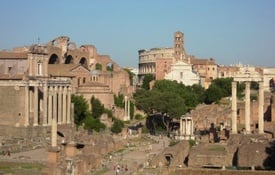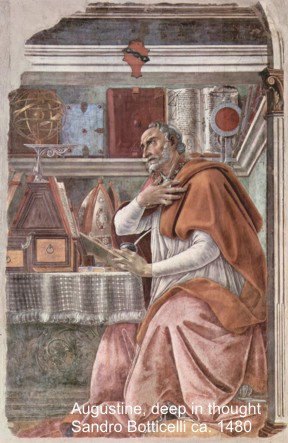 We are in the final days of Luke’s missionary sketch of Paul, and we are in the final week of this series on Acts and Mission. Paul is in prison, and if the traditional site of his imprisonment, just off the Capitoline Hill overlooking the Forum, is accurate, this is not unlike what Paul would have seen from prison. [Click on the image and it will expand. Colosseum in the center background.]
We are in the final days of Luke’s missionary sketch of Paul, and we are in the final week of this series on Acts and Mission. Paul is in prison, and if the traditional site of his imprisonment, just off the Capitoline Hill overlooking the Forum, is accurate, this is not unlike what Paul would have seen from prison. [Click on the image and it will expand. Colosseum in the center background.]
Here is a sketch of Paul’s explanation of himself to the Jewish community in Rome:
28:17 After three days Paul called the local Jewish leaders together. When they had assembled, he said to them, “Brothers, although I had done nothing against our people or the customs of our ancestors, from Jerusalem I was handed over as a prisoner to the Romans. 28:18 When they had heard my case, they wanted to release me, because there was no basis for a death sentence against me. 28:19 But when the Jews objected, I was forced to appeal to Caesar – not that I had some charge to bring against my own people. 28:20 So for this reason I have asked to see you and speak with you, for I am bound with this chain because of the hope of Israel.” 28:21 They replied, “We have received no letters from Judea about you, nor have any of the brothers come from there and reported or said anything bad about you. 28:22 But we would like to hear from you what you think, for regarding this sect we know that people everywhere speak against it.”
Paul explains his innocence. He’s Torah observant. There are no reports lodged in Rome against him, but the Jewish authorities would like to hear about the messianic beliefs because the rumors are circulating.
What strikes me again is this: Paul’s problem, as he sees it, is his belief in the hope of Israel, and that ties into his gospel: Jesus as Messiah, his resurrection, and belief in God’s redemptive work in the Messiah.

